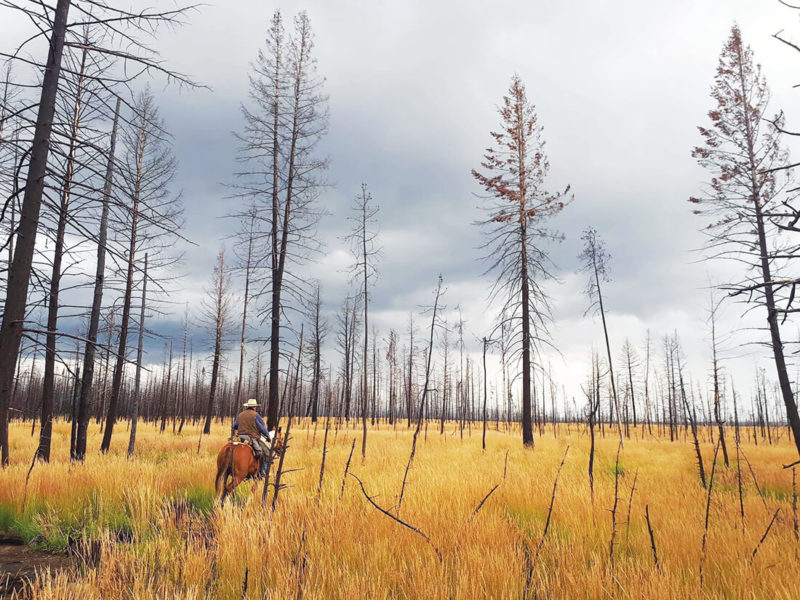VICTORIA—Since 2011, the BC Ministry of Agriculture has run a voluntary premises identification program for farm owners to voluntarily register their property and animals.
Registration helps to protect animal health and facilitates a rapid response in the event of emergencies. Anyone from hobby farmers with one or two animals to large commercial livestock operators can register.
“Premises ID deals exclusively with the premises and where they are – the farm, the feedlot, whatever the case may be,” explains Lisa Levesque, team lead, traceability and premises identification with the BC Ministry of Agriculture.
Approximately 57% of premises have been registered since the program started, but the ministry is considering a new premises ID regulation under the BC Animal Health Act. The regulation would make registration mandatory for all farms and livestock sites. Those sites include not only farms but stables, feedlots, apiaries, livestock markets, abattoirs, fairgrounds, or any facility where farm animals are present, raised, kept or disposed.
The purpose is to increase the precise tracking of any disease outbreak or any environmental emergency. During the 2017 wildfires, the premises ID program saw 130 emergency registrations for livestock owners affected by evacuation orders, improving their chances of being given re-entry permits in evacuation zones to care for their livestock.
This past summer, the ministry has been doing some outreach for feedback but there’s plenty of confusion regarding the intent of the regulation.
The plan is to identify premises only. It does not include the need to identify animals through the use of tags, tattoos or any other tracking device, explains Levesque, emphasizing that the program is exclusively for premises.
“We are just tackling the physical location which helps us to make maps of animal locations which we only use internally for emergency,” she says. “Animal identification such as tagging or tattooing is a federal responsibility, so it’s managed by the CFIA [Canadian Food Inspection Agency].”
Pushback
Levesque recognizes that there is some pushback from farm owners not wanting government involved in their businesses. Some landowners feel privacy is at stake, especially if they are small operators with just a few animals. They may not see the relevance or value of being in a government registry where data might float around and become available to others.
Levesque, however, emphasizes that no information is shared with other government agencies or researchers. The focus is on disease and environmental emergency response.
“If you have one animal or 50, if you get a communicable disease on your farm, it is still an issue and you can still transfer that,” she says, giving the example of African swine fever. “It has not made it to Canada. But from a risk perspective, if you have only one pig and it is exposed to a virulent disease, that one pig can be the trigger. Animal diseases have no boundaries and it’s not about us wanting to control the farming business, but we do want to be able to respond quickly to an emergency issue.”
An example would be the avian influenza outbreak that occurred in 2004 when there was a lack of accurate information on where chickens were actually being raised compared to the contact location. The outbreak was devastating. Many poultry farmers subsequently signed onto the premises ID concept, registering voluntarily. When the 2014-2015 outbreak happened, the program played a role in limiting the spread of the disease.
Levesque said that other examples include water contamination and flooding events, wildfires such as those in 2017 and 2018, and bovine tuberculosis.
“Those are all cases where premises ID was used. It’s not used a lot, but the information was very important for those situations,” she says.
The ministry is running a survey until October 11 regarding the proposed regulation. A discussion paper regarding the proposal and the survey can be found at [http://bit.do/Premises-ID].


 City Beet harvests profits from urban gardens
City Beet harvests profits from urban gardens